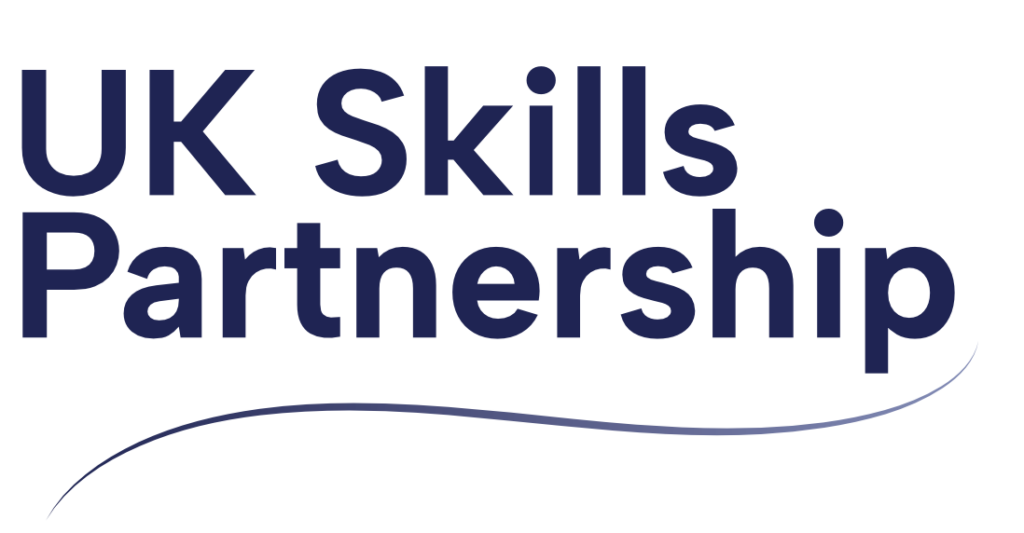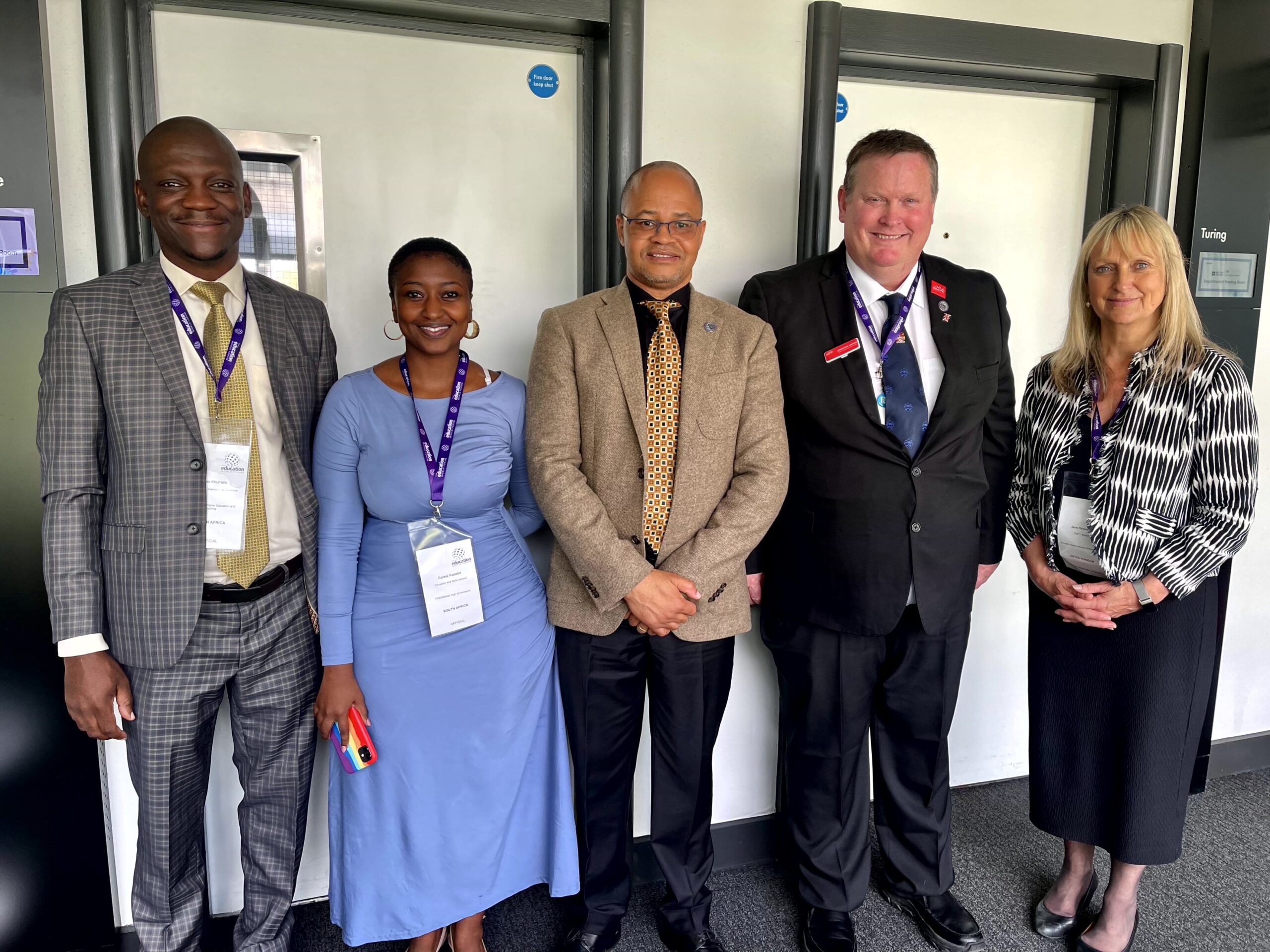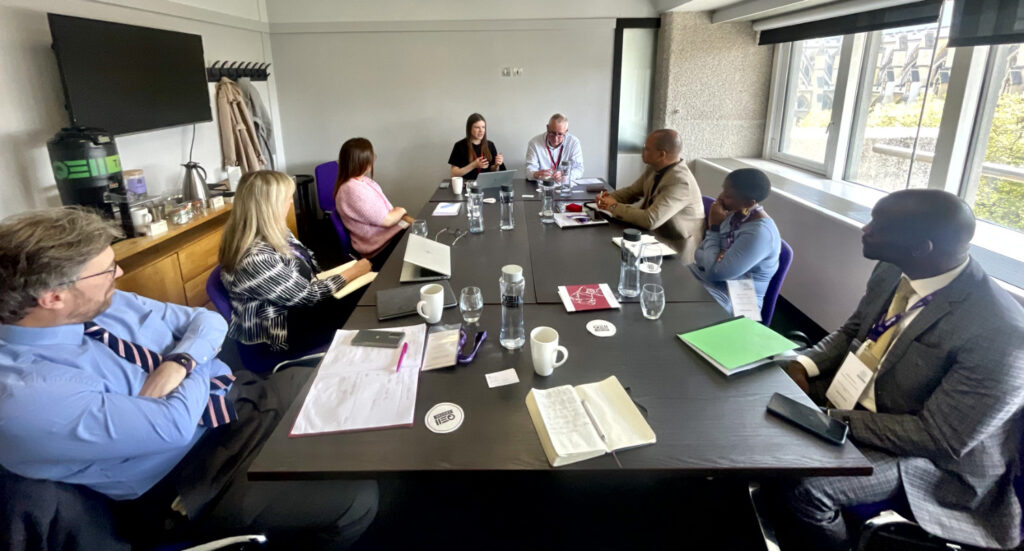Skills, skills skills! Earlier in May 2023, Jane Rexworthy, Chair of UK Skills Partnership participated in the world’s largest gathering of education and skills ministers at Education World Forum (EWF).
Held at London’s QEII Centre, EWF 2023 addressed how education has changed and what we have learned from recent disruption and responses and considered longer term challenge and change.
Representing the UK Skills Partnership, Jane attended ministerial meetings hosted by the Department for Business and Trade with representatives from Oman, Colombia, Jordan, Ghana, Hong Kong, UAE and Libya, among others, to share insights on the UK TVET system and to explore ways of supporting countries to address their TVET challenges.
With that in mind, here are some insights and reflections from this year’s EWF conference:
Global exchanges – There were some key statistics and statements shared at the conference that stood out:
- It will take 5 years to recover the lost learning for older children because of the pandemic.
- Less than 9% of the 1 billion children in the world have access to digital technology.
- For stability it is critical to keep politics out of the classroom.
- Resilience is now seen as a key skill.
Educational reform and the importance of TVET
Educational reforms are taking place in a number of countries to meet new priorities and objectives. The focus on ensuring industry-relevant skills through technical, vocational education and training shone through in many of the conversations:
- Jordan: The education sector reform is taking place now to ensure growth and STEM industries are supported by a skilled workforce at the right level. There is high youth unemployment in Jordan and a need to grow the TVET offer through colleges such as Luminous.
- Oman: Through their technical and vocational reform, Oman is changing the education system to include new BTEC qualifications. A pilot being set up for two girls and two boys schools in IT and business / entrepreneurship. The BTEC will include language, maths, and social skills. They see these routes as providing multiple occupational pathways.
- Ghana: A huge reform is taking place with a concentration in providing competency-based learning across the country and geographical equality. Ghana is setting up STEM schools to support their requirement for people in areas such as engineering, robotics, manufacturing, aerospace, and biomedical science.
- Libya: Interested in expansion of their TVET in key priority areas of solar energy, renewable energy, maritime, agribusiness, aeronautics and tourism, ministers recognise core life skills are needed to underpin the technical skills.
The future of education in Latin America
As ministers from the Americas attended a policy dialogue to exchange their ideas and plans for the future of education in their countries, it was insightful to hear some of the challenges faced and approaches being taken to support educational recovery following the pandemic:
- Brazil: In Brazil the pandemic caused a huge challenge in the educational offer. A large-scale national literacy programme is now in place to support the educational recovery, but the country is experiencing challenges due to its highly decentralised governance structure. Collaboration and consultation are therefore key.
- Nicaragua: Nicaragua was the only country in Latin America not to close its schools during the pandemic as many children relied heavily on the free school meals served. Whilst it’s a country with little digital connection in the homes, 75% of schools are now connected to the internet and students have access to tablets. Ministers highlighted the importance of the interaction between teachers and technology as they seek to use technology more widely to support education and learning.
- Colombia: During the pandemic education was seen as very important, and the country prioritised it alongside health. To reduce the impact of school closures, they took a multi-channel approach to support students. The Ministry of National Education provided a wide variety of free educational resources to the educational community through its platform Aprender Digital. They also broadcast educational content through TV, public and private radio. They have also opened 17 new community schools that are digitally advanced and green eco-friendly.
- Jamaica: Jamaica’s education transformation plan is prioritising the construction of six STEM Schools and one STEAM School to increase the level of innovation and critical thinking required for future careers and economic advancement. It is also placing an emphasis on pedagogy of teachers. Jamaica has also expanded its sixth form programmes and recent figures show a 21% increase for the 2022/23 academic year.
Education that motivates Gen Alpha
As we enter a generational transition where Gen Z are entering the workforce as Gen Alpha (defined as those born between 2010-2024) move through their schooling years, it’s important that as countries reform their educational approaches that we factor in the motivations of the future generation and the need for 21st-century skills.
Born into a globalised and digitised world, skill-based learning, learning with flexibility and purpose, and personalisation are critical alongside the adoption of technology to make their learning more efficient. Cultivating the soft – or core life skills – of Gen Alpha will also be needed to provide the essential skills that young people need to be fully prepared for life and work in a global economy.
Solutions for thought:
The challenges faced by Brazil in its educational recovery after the pandemic, particularly due to its highly decentralised governance structure present a challenge. Fostering collaboration and consultation among educational stakeholders at various levels could be a potential solution. Establishing effective communication channels and coordination mechanisms can enhance the implementation of national programs and ensure a more unified response to educational challenges.
Nicaragua’s connectivity challenges during the pandemic would benefit from targeted efforts to improve digital connectivity in homes, especially in regions with limited access. Collaborative initiatives between the government, private sector, and non-profit organizations can be explored to bridge the digital divide and ensure that all students have equitable access to online learning resources.
Jamaica’s emphasis on constructing STEM and STEAM schools as part of its education transformation plan is absolutely fantastic. To maximise the impact of these initiatives, there could be a focus on integrating innovative pedagogical approaches within these schools. Professional development programmes for teachers, emphasising innovative teaching methods and leveraging technology, can enhance the quality of education and better prepare students for future careers requiring critical thinking and innovation.
Colombia’s post-pandemic challenges could make better use of technology within education. Colombia could explore long-term strategies to continue leveraging technology in education. Developing comprehensive policies, investing in digital infrastructure, and providing ongoing training for teachers can contribute to the sustainable integration of technology in the education system.
Throughout this post, we have emphasised the importance of cultivating 21st-century skills for Gen Alpha, the generation born between 2010-2024. Educational systems worldwide need to focus on developing and implementing curriculum reforms that prioritise skill-based learning, flexibility, and personalisation. Additionally, fostering partnerships between educational institutions and industries can ensure that the skills taught align with the evolving demands of the workforce, preparing Gen Alpha for success in a globalised and digitised world.
Contact the UK Skills Partnership for more help about skills development and implementation – we are ready to help wherever you are located.


